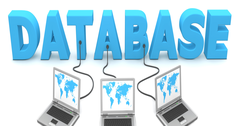- Basic SQL
- SQL Aggregations
- SQL JOINs
- SQL Window Functions
- SQL Subqueries and Temporary tables
- SQL Data Cleaning
- SQL Advanced JOINs and Performance Tuning
- Project- Deforestation Exploration
SQL
Become a master in SQL, The programme will strengthen you to prepare insight-driven decision-making and strategy for ...Read more
Beginner
Online
2 Months
Quick Facts
| particular | details | ||||
|---|---|---|---|---|---|
|
Medium of instructions
English
|
Mode of learning
Self study, Virtual Classroom
|
Mode of Delivery
Video and Text Based
|
Learning efforts
10 Hours Per Week
|
Course overview
Designed to make you a pro at Structured Query Language (SQL), the SQL Nanodegree Programme by Udacity offers an in-depth training which will help you in learning the execution of core SQL commands to access, manipulate, control, and join data and data tables. Introduction to the language also includes tutorials on how to optimise SQL queries, clean data, and write select advanced JOINs for enhancing analysis performance.
With a primary focus on providing an immersive learning experience, the SQL course nourishes your skills in leveraging the power of SQL commands and functions, data cleaning methodologies for joining, aggregating, and cleaning tables. Candidates will get an insight into how to perform analysis on data stored in the relational and non-relational database systems to boost strategic decision-making.
Choosing the SQL Nanodegree Programme will make you proficient in determination, creation and execution of SQL and NoSQL queries that might manipulate and dissect large scale datasets. You will also learn to apply relational database management techniques that normalize data schemes and build supporting data structures for social news aggregators.
The highlights
- Two months course
- Learn with the best in the field
- Real-world projects from industry experts
- Technical Mentor Support
- Flexible and immersive learning program
- A Personal career coach and career services
- Experienced project reviewers
- Unlimited Submission and Feedback loops
Program offerings
- Real-world projects
- Project reviews
- Project feedbacks
- Technical mentor support
- Student community
- Personal career coaching
- Interview preparations
- Resume services
- Github review
- Linkedin profile review.
Course and certificate fees
The fee for Learn SQL is summarized as follows:
| Particulars | Amount |
| Annual Fee | ₹20,500 |
Monthly fee - pay as you go | ₹10,250/month |
certificate availability
Yes
certificate providing authority
Udacity
Who it is for
Because the nanodegree is flexible, the SQL online course does not require any prior experience or background. People interested in Data Science and Analysis with a basic knowledge of programming can enrol themselves and benefit from the course.
Eligibility criteria
Skills
Basic computer skills are essential to join this nanodegree programme; including familiarity with Operating Systems (Windows and macOS) and word processing programmes (Microsoft Word, Google Docs, etc.).
In addition, candidates should have familiarity with presentation and spreadsheet software (PowerPoint, Keynote, Google Slides, Microsoft Excel, Google Spreadsheets) to apply for the SQL programme.
With the skills mentioned above, a basic understanding of data types such as string and integer will be helpful.
What you will learn
Without a smidgen of an exaggeration, the SQL Nanodegree Programme by Udacity is a full-fledged course that covers all the aspects needed in mastering the Structured Query Language (SQL). For a booming career involving various job titles like data analyst, product manager, product analyst, data scientist, business analyst, and more, this Nanodegree program proves to be a blessing. In the course, candidates will:
- Get in-depth instructions and guidance on leveraging the power of SQL in order to pull insights from relational databases
- Get to work on real-world projects, including building a clone of the widespread social news aggregation and discussion website like Reddit
- Equip your mind to know when to utilize SQL to give data-backed insights into intricate business strategies
- Get well-versed with the situational differences to use relational databases versus non-relational databases like MongoDB and Redis
- Learn about SQL Database Definition Language (DDL) and SQL Database Manipulation Language (DML)
- Create data schemas designed in Postgres and migrate the data from denormalized schema to a normalised one
The syllabus
Introduction to SQL
Management of Relational and Non-Relational Databases
- Normalizing Data
- Data Manipulation Language (DML)
- Data Definition Language (DDL)
- Consistency with Constraints
- Into to Non-Relational Databases
- Performances with Indexes
Admission details
Step 1 - Visit the official website of Udacity: www.udacity.com.
Step 2 - Hover the pointer on “Programs”, a dialogue box will appear. Choose Data Science and then click on “SQL”.
Step 3 - You will be redirected to the course-specific website where you will see the “Enrol Now” button. Click that button.
Step 4 - You will be redirected to the Rate section of the website. Choose a plan according to your requirements and click on “Start Free Trial”.
Step 5 - You will be redirected to a page with the option to pay. You can also avail coupons if you have any, here. Click on “Pay Now” to Enrol.
Filling the form
The SQL online course is an ultra-flexible course that accepts everyone regardless of experience and background. Hence, there is no application.
How it helps
Employers nowadays are eyeing professionals with SQL skills. SQL is considered to be the most in-demand skill, surpassing programming languages like Python, Java, and JavaScript. The SQL nanodegree programme by Udacity will help you in applying the acquired data analysis skills in roles like Data Analyst, Business Analyst, Data Modeler, and more that necessitate the knowledge of SQL.
Data professionals who want to make a career in IT database management or business analytics can benefit from the SQL online course in immense measures. With Hands-on experience on projects which will be reviewed by the Udacity reviewer network, candidates will ace in the data technology field loaded with practical knowledge.
Instructors
FAQs
What is the duration of this course?
On average, students take 2 months to complete this programme; working 10 hours per week. For those who do not graduate within 2 months can continue learning on a month-to-month payment basis.
What Software and Versions will be needed in this program?
For the SQL nanodegree programme, you will require a laptop or desktop running recent versions of Windows, macOS, or Linux. You will also need a broadband connection.
What languages and software will I get to use in this course?
You get hands-on experience with Postgres, SQL, NoSQL, SQL DML, and SQL DDL in this Nanodegree program.
What jobs will this prepare me for?
The Nanodegree programme will prepare you for roles such as Data Analyst, Business Analyst, Product Manager, Data Modeler, Data Scientist, among others.
Can I change my start date? Can I get a refund?
Please look at the Udacity Programme “Terms of Use” for policies on enrolment in our programmes.
Articles
Popular Articles
Latest Articles
Similar Courses


NoSQL Database
Great Learning


Introduction to NoSQL Databases
IBM via Coursera


NoSQL Database Basics
IBM via Edx


Relational Database Basics
IBM via Edx


Introduction to Database Queries
NYU via Edx
.jpg)

Introduction to Relational Databases RDBMS
IBM via Coursera


Databases and Structured Query Language for Data S...
IBM via Coursera


Using Databases with Python
UM–Ann Arbor via Coursera
Courses of your Interest

Professional Certificate Course in Data Science
Newton School

JavaScript Foundations
PW Skills

Technical Analysis Series
PW Skills

C Programming Foundations
PW Skills

Python Foundations
PW Skills

Getting Started with Generative AI APIs
Codio via Coursera

Generating code with ChatGPT API
Codio via Coursera

Prompt Engineering for ChatGPT
Vanderbilt via Coursera
More Courses by Udacity

Data Visualization in Tableau
Udacity

Intro to HTML and CSS
Udacity

Eigenvectors and Eigenvalues
Udacity

Intro to JavaScript
Udacity

Digital Freelancer
Udacity

Introduction to Statistics
Udacity

Version Control with Git
Udacity


 Brochure
Brochure Enquire
Enquire















